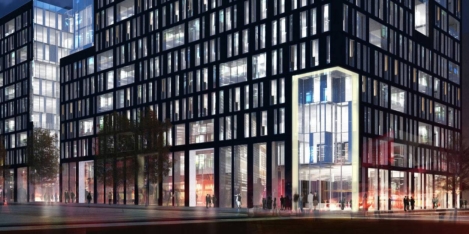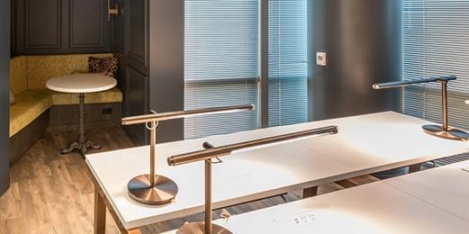September 4, 2018
Quality coffee tops the list as the most important office feature
 The quality of the coffee is the most important feature for office occupants, with two thirds of workers saying a decent flat white or cappuccino is an essential for a productive and engaged workforce. Research by coworking developer Areaworks also found that being closer to the outdoors, and the ability to work from a balcony or roof terrace was an important factor for 64 percent. Hanging chairs, bean bags and flexible spaces are a must for most, as half of office workers want to ditch fixed desks in favour of casual seating and hot desking, making it a top five most favoured feature. the office gimmicks failed to feature on most people’s workplace bucket list. The installation of office gimmicks such as fireman’s poles and ball pits all failed to feature on most people’s workplace list, but slides did make the list, while the majority (66 percent) included a fridge complete with beer and prosecco among their choice items.
The quality of the coffee is the most important feature for office occupants, with two thirds of workers saying a decent flat white or cappuccino is an essential for a productive and engaged workforce. Research by coworking developer Areaworks also found that being closer to the outdoors, and the ability to work from a balcony or roof terrace was an important factor for 64 percent. Hanging chairs, bean bags and flexible spaces are a must for most, as half of office workers want to ditch fixed desks in favour of casual seating and hot desking, making it a top five most favoured feature. the office gimmicks failed to feature on most people’s workplace bucket list. The installation of office gimmicks such as fireman’s poles and ball pits all failed to feature on most people’s workplace list, but slides did make the list, while the majority (66 percent) included a fridge complete with beer and prosecco among their choice items.







 The repercussions of a no-deal Brexit are being
The repercussions of a no-deal Brexit are being 


 Total real estate investment in Europe decreased by 8 percent in the second quarter of this year, but there has been strong growth in the offices sector, with volumes totalling €29bn, compared to €24.1bn for the same period last year. Office investment for the first half of the year was also up 11 percent on the same period last year. Furthermore, investment into other areas, including healthcare and student accommodation, remained resilient, with volumes on par with that of last year and 6 percent up on the first half of 2017. Following a more subdued start to the year, the UK posted a strong second quarter. Total investment in Q2 2018 reached €19.9bn, driven by a record quarter for London City office investment. Jonathan Hull, managing director of Investment Properties, EMEA at CBRE commented: “Despite ongoing political uncertainties, the UK remains an attractive destination for European and global capital.”
Total real estate investment in Europe decreased by 8 percent in the second quarter of this year, but there has been strong growth in the offices sector, with volumes totalling €29bn, compared to €24.1bn for the same period last year. Office investment for the first half of the year was also up 11 percent on the same period last year. Furthermore, investment into other areas, including healthcare and student accommodation, remained resilient, with volumes on par with that of last year and 6 percent up on the first half of 2017. Following a more subdued start to the year, the UK posted a strong second quarter. Total investment in Q2 2018 reached €19.9bn, driven by a record quarter for London City office investment. Jonathan Hull, managing director of Investment Properties, EMEA at CBRE commented: “Despite ongoing political uncertainties, the UK remains an attractive destination for European and global capital.”





















August 16, 2018
The office will always live on because nothing propinks like propinquity
by Mark Eltringham • Comment, Property, Workplace design